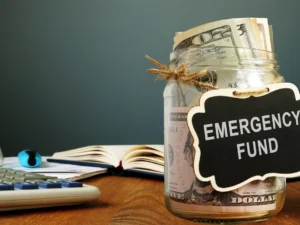Did you know that Millennials are now a larger percentage of the population than Baby Boomers? Millennials are typically defined as people born between the early 1980s and early 2000s. This age group is often referred to as the Millennial Generation or Generation Y. In 2015, there were an estimated 75 million Millennials. You may be a member or have children who are a member of this generation.
With the increased cost of college, student debt and the difficult job market, it has been challenging for Millennials to save. In a survey conducted by www.howmuch.net, it was found that out of 2,585 responses from Millennials aged 18 to 34, 51.8% do not have an emergency fund of at least $1,000. USA Today and Bank of America polled Millennials and discovered 3 out of 10 do not have a savings account. Fidelity found that more than 50% of Millennials had not yet started saving for retirement.
If you’re part of the Millennial Generation and want to improve your financial situation, the good news is that there are simple solutions.
Set Up an Emergency Fund Savings Account
To avoid the trap of relying on credit cards to pay your bills or cover an unexpected expense, open a savings account to save for emergencies. Many financial experts recommend you set aside enough money to cover three to six months of your living expenses, like car payments, rent, and utilities. Have a portion of your money automatically deposited into your account every pay period until you have enough saved to cover several months of living expenses.
Set Up a Long-Term Savings Account
Once you have your emergency fund established, open another account—such as a UNITY Savings account—to save money for the future. You could save toward your future home purchase, an investment, or your children’s future college education.
Keep Track of Your Spending
In order to see where your money is going and avoid expensive overdrawn bank account fees, use a ledger to track your debit card spending. Many Millennials rely on their only bank balance to keep track of purchases, but unless you’re keeping careful track of them, debit card purchases over the weekend or on a holiday may not show up online until Monday and you could mistakenly believe you have more money available than you really do. Overdrafts add up. The Consumer Financial Protection Bureau reports that 1 out of 10 Millennials overdraw their bank account more than ten times each year. This can easily cost $380 or more in bank fees.
Plan Ahead for Expenses to Avoid Credit Card Use
Many Millennials will put big expenses like vacations on a credit card, figuring they can pay them off quickly. But the interest adds up fast; if you’re faced with an unexpected expense after making the purchase, you can find yourself struggling to pay it off. Late fees and interest will increase the balance you owe and eventually hurt your credit score. It’s better to save cash toward big expenses than put them on a credit card.
With these simple changes in purchasing and saving behavior, you can make a positive impact on your financial future.


















